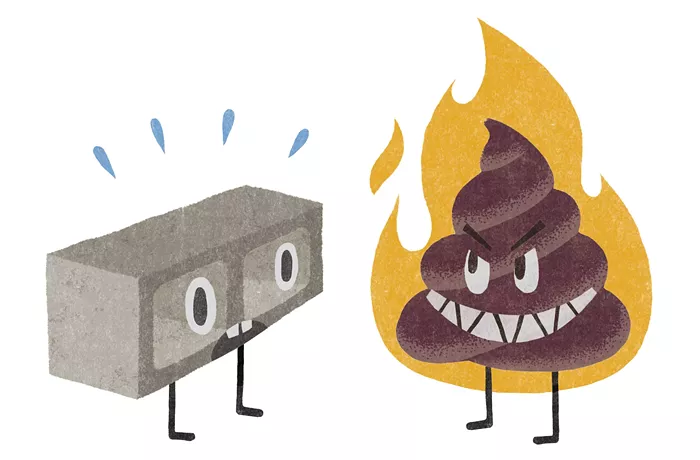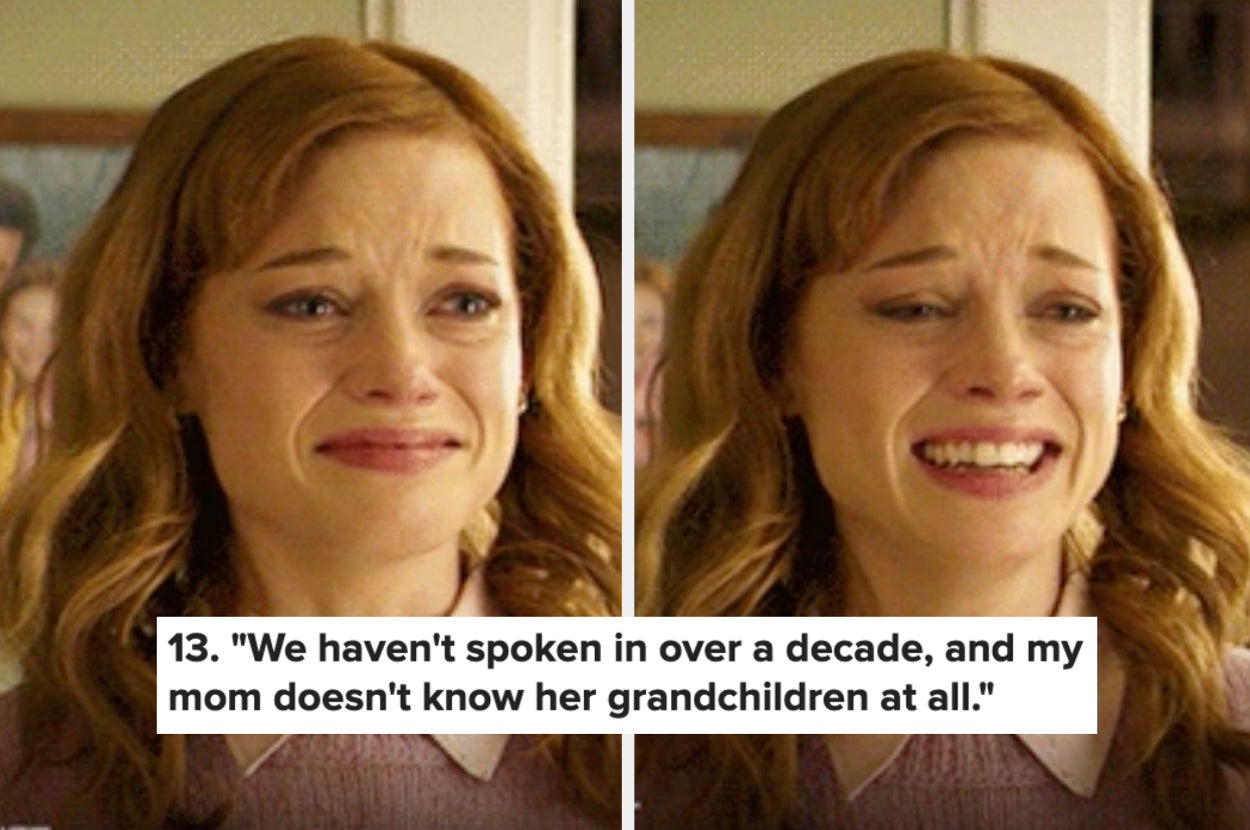#emotional-abuse
#emotional-abuse
[ follow ]
Television
fromPinkNews | Latest lesbian, gay, bi and trans news | LGBTQ+ news
2 days agoKaramo Brown says he was 'forcing connections' amid Queer Eye fall-out
Abandonment can cause people to force connections; prioritize self-love, recognize signs of unequal relationships, and end ties that deplete you.
fromFast Company
3 days agoWhen bullying happens at work
If you've spent enough time in workplaces, on boards, or in other community organizations, you've probably had that moment where your stomach tightens in a meeting and you're not entirely sure why. A comment lands sideways. A tone shifts. Someone interrupts you for the third time. You walk away replaying the exchange, wondering whether you imagined it or whether something subtle but unmistakable just happened. That confusion is often the first sign you're dealing with a workplace bully.
Mental health
fromwww.mercurynews.com
5 days agoDear Abby: We've had one kiss in four months. Am I wasting my time?
I have been dating Rita for four months. We peck on the lips, hug and hold hands, but we have had only one real kiss so far. Rita was first married for 22 years to an emotionally abusive man and then remarried to a manipulative one. She said we were going too fast and she wanted to slow down. I understood and have exerted no pressure on her.
Relationships
fromBuzzFeed
2 weeks ago"My Mom Wants Me To Die In An Accident": Parents Who Are Making 2026 A Living Hell For Their Kids
My mom just told me to die over an email I misread. My mom is Indian, and she prioritizes academic achievements and results a lot. My brother and I are basically her one ticket to get respect from people who despise her. Whenever I get low exam grades, she lectures me about how she sacrificed everything to have me here, and I really wanted to tell her that marks aren't everything.
Mental health
fromwww.mercurynews.com
2 weeks agoDear Abby: I saw my husband's text about wanting to leave me
Among the recent messages my husband had sent to her was one in which he told her he was in hell living with me and he didn't give a damn about me. He also asked his sister if he could move in with her! (She was fine with that.) He said he would figure a way out, and that there was always a way out.
Relationships
fromSilicon Canals
3 weeks ago8 behaviors you should never tolerate from someone who claims to love you, according to psychology - Silicon Canals
Love is supposed to feel safe, right? I remember sitting across from my therapist three years ago, trying to explain why I stayed in a relationship where I constantly walked on eggshells. "But they love me," I kept saying, as if that justified everything. That session changed how I understood love forever. After my four-year relationship ended in my mid-twenties, I dove deep into understanding attachment styles and relationship psychology. What I discovered was eye-opening: Genuine love has boundaries.
Relationships
fromPsychology Today
1 month agoAdaptation Trap: Why Children of Narcissists Lose Themselves
One sign you grew up with a narcissistic parent is that you were never allowed to think something was wrong with them or their parenting. The only permitted conclusion was that something was wrong with you. Of course, children growing up with such a message inherit a heavy mix of shame, a guilt they can't place, and an anger they learned to swallow. As a child of narcissistic parents, you might be great at achieving things, but feel empty doing it.
Mental health
fromSlate Magazine
1 month agoMy Son Is Accusing Me of Sleeping With the Mom Next Door. He's Determined to Do Something About It.
Most recently he has decided that I am having an affair with Clara, the (happily married heterosexual) woman next door. While Clara and I are good friends and I enjoy her company, there is nothing romantic between us. He is furious with me and has all but cut off his friendships with the kids next door, refusing to step foot inside their home even though our families used to eat together once or twice a week.
Parenting
fromPsychology Today
1 month agoWhy No Contact Feels Worse Than Staying With a Toxic Person
In healthy relationships, people tend to feel safe and respected. You may argue, but you don't fight. A level of respect and care is maintained, and the past is not brought up as a weapon. Over time, your nervous system learns that this person is reliable. In unhealthy relationships, especially those involving emotional abuse, attachment works differently. Instead of safety, the bond forms around chaos and survival. This process is known as a trauma bond.
Mental health
Mental health
fromSocial Media Explorer
2 months agoThe Ghost at the Dinner Table: How I Finally Evicted My Father's Voice from My Head - Social Media Explorer
Childhood verbal and emotional abuse causes prolonged anxiety, self-blame, hypervigilance, perfectionism, and requires a difficult, non-linear healing process to reclaim safety.
fromBuzzFeed
2 months agoMy Mom Tortured Me - And Made My Brothers Her Enforcers. Years Later, I Finally Discovered Why.
As the headlights swept across the driveway, I saw her standing there - stiff and stern, her body rigid with rage. One hand clutched our dog's leash, the other gripped a glass of water and was trembling slightly - not from fear, but from fury held barely in check. Her jaw was so tight, it looked like it might snap. Brightly lit by the car lights, she hurled the water in my face before I could even say hello.
Mental health
fromBusiness Insider
3 months agoI haven't kissed anyone in 6 years. It's not because I gave up on love.
I had my first boyfriend at 16 and stayed in relationships nonstop until six years ago. I was heavy into dating apps, often seeing more than one person at once. In college, I had a serious boyfriend I thought I'd marry. Then, at 24, I met my husband on Match.com. We moved fast: he relocated from Connecticut to Long Island, where I still live, and we married two years later. Shortly after, we had our two sons.
Relationships
fromPsychology Today
4 months agoWhen a Mother Catfishes Her Daughter
The 2025 Netflix documentary, UnKnown Number: The High School Catfish, depicts the true story of a mother in Michigan who shockingly barrages her teenage daughter with vicious text messages for nearly two years. The texts, sometimes up to 50 per day, included death threats, sexually explicit messages, and even a directive to the daughter to kill herself. Why would a mother do such a thing?
Parenting
Relationships
fromwww.mercurynews.com
4 months agoAsking Eric: It was my dream to move here. Now how do I convince my husband we should go back?
A spouse wants to relocate closer to family for health, support, and accessibility but faces a partner who may be emotionally controlling and whose job could prevent the move.
fromBuzzFeed
4 months agoI Always Thought Cheating Was Unforgivable. Then A Friend's Affair Made Me Question Everything.
Steve messed up all the time, his wife said, because he's "sloppy," and, truth be told, "stupid." A few years into their marriage, words like "always" and "never" entered the mix. He "always fucked up." He could "never be trusted" - even to fill out a simple form, and certainly not to spend money without her approval. Steve was told he misjudged people and that he needed his wife to tell him what to say so that everyone wouldn't hate him.
Relationships
fromwww.mercurynews.com
4 months agoDear Abby: I'm tired of living alone while my girlfriend lives with her husband
I am a man who was widowed 11 months ago. I met a woman on a dating site, and we clicked immediately. We have been enjoying each other's company for several months. We have a long-distance relationship. She lives three hours away. Although she indicated on the dating site her status as separated for two years, she still lives in the marital house with her husband.
Relationships
fromScary Mommy
4 months agoStop Blaming Women For "Choosing" Crappy Partners
It wasn't helpful. It didn't make me feel any better about my situation, nor did it make me feel stronger. All it did was make me feel guilty. Guilty that I had given my daughter this man as a father, guilty that I had fallen for his tricks when clearly everybody else knew he was bad news, guilty that I was bad at picking partners.
Relationships
fromSlate Magazine
4 months agoHelp! My Friend Just Got Engaged. I Know Her Fiance's Dark Secret.
She met him at work, and he has been known to jump from woman to woman there. I've heard that her fiancé will date women in his office and then all of a sudden start ignoring them-speaking to everyone around them but giving them the silent treatment. One woman already quit her job over how he treated her. Another chewed him out but says she won't give him the "satisfaction"
Relationships
fromBuzzFeed
5 months agoOlder Women Who Never Got Married Are Revealing What It's Like To Be Single Later In Life
I am apparently too ambitious and goal-driven. Every time I got a promotion, started working on a project or a goal, or achieved something I'm happy about, ex-partners have gotten insecure and then started to humble and belittle me. I used to model, and everything was cool when they thought I'd just be pretty. But when they realize my mind is the most attractive thing about me, they're over it.
Relationships
fromPsychology Today
5 months agoAm I Being Toxic in My Relationship Without Realizing It?
Have you ever gone completely quiet in the middle of an argument-your mind blank, your mouth frozen? Or felt so overwhelmed after a fight that you left-not just the room, but the relationship itself? I've been there. And for a long time, I didn't know why. I thought I was the problem, or maybe I was just cold. Unavailable. But I've come to understand something important:
Mental health
fromPsychology Today
5 months agoWhen Criticizing the Other Parent Is Harmful to Children
"Nichole" was 10 when I started seeing her at her school. The school counselor reported that Nicole was talking about wanting to "cut myself in half," prompting concern. During our first session, she reported that she lives with her mom during the week and visits her dad every other weekend. This is common for many kids whom I see, as we live in a time of many diverse examples of family and parenting. In therapy, she began to talk about feeling scared to mention her dad around her mom. When asked why, she shrugged and said, "Because it'll make her mad."
Parenting
Parenting
fromwww.mercurynews.com
9 months agoAsking Eric: The kid who smiled while he tortured his brother is not normal
Professional intervention is critical for the wellbeing of children involved in abusive sibling dynamics.
Immediate steps must be taken to protect the younger child and address the older child's behavior.
Parenting
fromPsychology Today
9 months agoVerbally Abused by Your Adult Child? Here's What to Do
Setting boundaries with an emotionally abusive child is essential for your well-being.
Recognizing the difference between hurt and emotional punishment is crucial.
It is possible to maintain love while also protecting yourself.
Mental health
fromBuzzFeed
10 months agoI Help People Get Divorced. These Are The Biggest Relationship Red Flags I Constantly See.
High-conflict spouses can inflict severe emotional and financial damage after a breakup.
The family court system can inadvertently enable abusive behavior in high-conflict divorces.
[ Load more ]



































